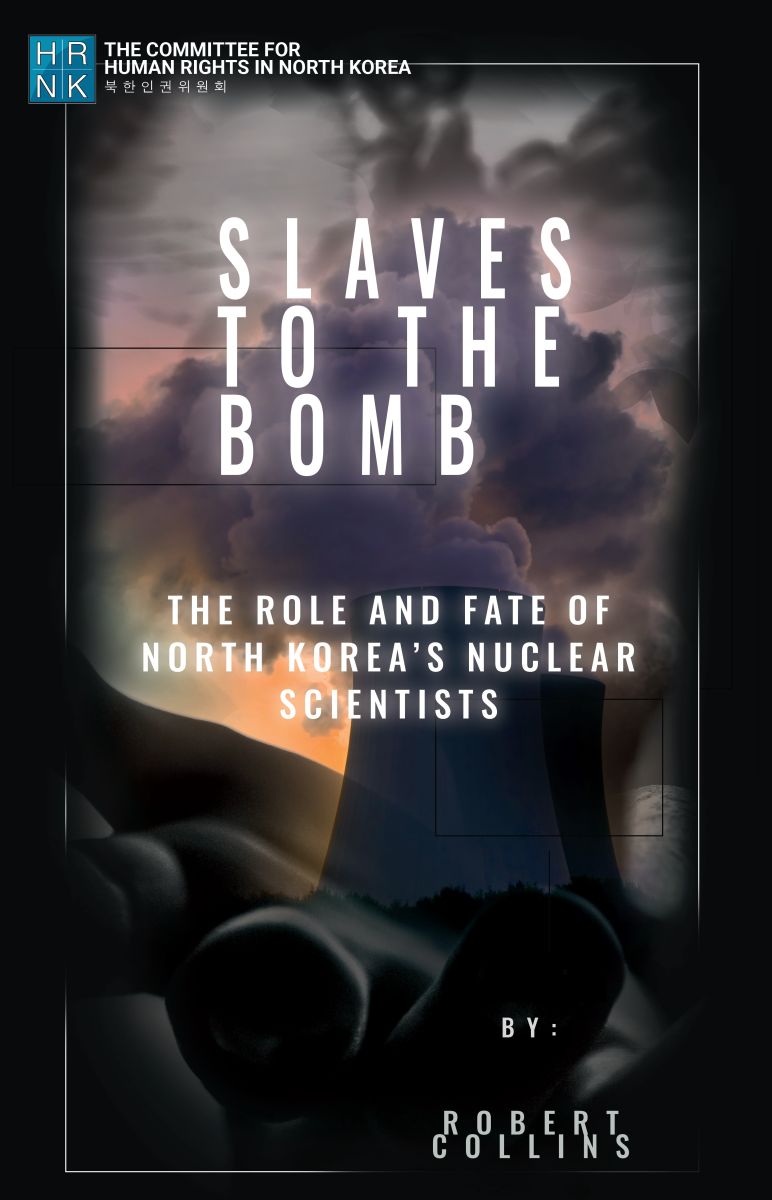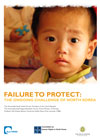
Failure to Protect: The Ongoing Challenge of North Korea
DLA Piper
2008
This report is a sequel to the previous report, “Failure to Protect: A Call for the UN Security Council to Act in North Korea” (2006), which called for the UN Security Council to take action. The report identifies concerns with respect to human rights in North Korea. While North Korea has opened up to some international aid, their food policy and inequitable social classification system (“Songbun”) prevents large segments of the population from ever receiving food provided by international and bilateral relief agencies. After the first “Failure to Protect” report, other research has drawn attention to the treatment of political dissenters, detailing North Korea’s continued use of political prison camps to brutally deny basic human rights. Findings also include North Korea’s continued reluctance to earnestly deal with the issue of its abduction of foreign citizens. The report addresses the outflow of refugees and spillover effects, which lead to the creation of a market of victims of trafficking, exploitation, and violence. The report concludes by addressing several policy recommendations to the international community.
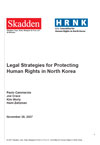
Legal Strategies for Protecting Human Rights in North Korea
Skadden, Arps, Slate, Meagher & Flom LLP
2007
For over sixty years, the Democratic People’s Republic of Korea has engaged in the systematic, flagrant violation of nearly every human right recognized and protected by international law. This handbook describes the options available to human rights non-governmental organizations (NGOs) seeking to pursue international legal action against North Korea. The international legal system offers a variety of avenues for action, which NGOs can pursue. This report explores such legal avenues, linking NGOs to a larger framework of international legal institutions. It identifies specific options available in the case of North Korea, explores ways to pursue available options, and analyses the practical advantages and difficulties of each one. By presenting practical information, this report attempts to illustrate how NGOs may conduct their own analysis for legal options most helpful to their respective challenges.
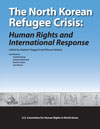
The North Korean Refugee Crisis: Human Rights and International Response
Stephan Haggard and Marcus Noland
2006
Concentration on the strategic problem in the national security context is clearly warranted, yet there is another, growing dimension to the North Korean problem that poses a grave challenge: the plight of ordinary North Koreans who are denied even the most basic human rights, and those who risk their lives to escape the world’s worst nightmare, the tyranny of the Kim Jong-il regime. In this report, six experts – Stephen Haggard, Marcus Noland, Yoonok Chang, Joshua Kurlantzick, Jana Mason, and Andrei Lankov – examine in convincing detail the plight of those determined escapees and the problems they have after realizing that the border is only the preliminary hurdle. A study is conducted from August 2004 to September 2005 by 48 trained interviewers. A total of 1,346 refugees are interviewed in Shenyang, Changchun, Harbin, Yangbin, Tumen, Helong, Hunchun, Dandong, Jilin, Tonghua, and Wangqing to broadly reflect the characteristics of the North Korean refugee population and to enhance awareness of their current status. The study outlines who the refugees are, how representative they are of the North Korean population, and whether or not there are reasons to believe that their attitude or experiences may be systematically biased or distinct. The report also identifies the conflicting interests of China and attitude of South Korea towards the North Korean refugee crisis.
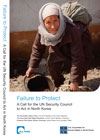
Failure to Protect: A Call for the UN Security Council to Act in North Korea
DLA Piper LLP
2006
Czech Republic President Havel, Norwegian Prime Minister Bondevik, and Nobel Peace Prize Laurate and Boston University Professor Elie Wiesel commissioned the global law firm DLA Piper LLP to work with the U.S. Committee for Human Rights in North Korea, because they believed that the security threat posed by North Korea has relegated the human rights concerns in the country to a second-class status. With the unanimous adoption by the UN Security Council of the doctrine that each state has a “responsibility to protect” its own citizens from the most egregious of human rights abuses, this report presents the failure of the North Korean government to exercise its responsibility to protect its own people. Based on a comprehensive review of published information and first-hand interviews, this report concludes that North Korea has violated its responsibility to protect its own citizens from crimes against humanity being committed in the country, that North Korea has refused to accept prior recommendations from UN bodies to remedy the situation, and therefore, that UN Security Council action is warranted. In addition, the report explains that North Korea qualifies as a non-traditional threat to international peace and security and describes the country’s involvement in the production of nuclear, chemical, and biological weapons.
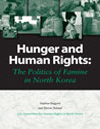
Hunger and Human Rights: The Politics of Famine in North Korea
Stephan Haggard and Marcus Noland
2005
North Korea is well into its second decade of chronic food shortages. With plausible policy adjustments – such as maintaining food imports on commercial terms or aggressively seeking multilateral assistance – the government could have avoided the famine and the shortages that continue to plague the country. Instead, the regime blocked humanitarian aid to the hardest hit parts of the country during the peak of the famine and curtailed commercial imports of food once humanitarian assistance began. The DPRK stopped importing food and gradually reduced the purchase of grain to as low as one-tenth of the needed amount. After over one decade of humanitarian missions on the ground in North Korea, such programs are far from living up to international standards. We have no guarantee that aid is reaching the truly needy, and the communist regime consistently spoils any attempts to control its distribution. The report concludes that we have therefore to pose the question whether the ultimate result of humanitarian aid is the reinforcement of the North Korean regime.
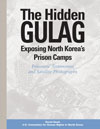
The Hidden Gulag: Exposing North Korea’s Prison Camps
David Hawk
2003
A prominent human rights investigator and advocate, David Hawk, and the Committee for Human Rights in North Korea compiled a full documentation of North Korean political prisoner camps. This report describes a number of penal institutions in the Democratic People’s Republic of Korea (DPRK) administered by two different North Korean police agencies: the In-min-bo-an-seong (People’s Safety Agency) and the more political Kuk-ga-bo-wi-bu (National Security Agency). The report outlines two distinct systems of repression: first, a North Korean gulag of forced-labor colonies, camps, and prisons where scores of thousands of prisoners – some political, some convicted felons – are worked, many to their deaths, in mining, logging, farming, and industrial enterprises, often in remote valleys located in the mountainous areas of North Korea; and second, a system of smaller, shorter-term detention facilities along the North Korea-China border used to brutally punish North Koreans who flee to China – usually in search of food, in particular during the North Korean famine of the mid to late 1990s – but are arrested by Chinese law enforcement agents and forcibly repatriated to the DPRK.
This is the first satellite imagery report by HRNK on a long-term political prison commonly identified by researchers and former detainees as Kwan-li-so No. 18 (Pukch'ang). This report was concurrently published on Tearline at https://www.tearline.mil/public_page/prison-camp-18.
To understand the challenges faced by the personnel who are involved in North Korea’s nuclear program, it is crucial to understand the recruitment, education, and training processes through the lens of human rights. This report offers a starting point toward that understanding. North Korea’s scientists and engineers are forced to work on the nuclear weapons program regardless of their own interests, preferences, or aspirations. These individuals may be described as “moder
In this submission, HRNK focuses its attention on the following issues in the DPRK: The status of the system of detention facilities, where a multitude of human rights violations are ongoing. The post-COVID human security and human rights status of North Korean women, with particular attention to sexual and gender-based violence (SGBV). The issue of Japanese abductees and South Korean prisoners of war (POWs), abductees, and unjust detainees.
This report provides an abbreviated update to our previous reports on a long-term political prison commonly identified by former prisoners and researchers as Kwan-li-so No. 25 by providing details of activity observed during 2021–2023. This report was originally published on Tearline at https://www.tearline.mil/public_page/prison-camp-25.
This report explains how the Kim regime organizes and implements its policy of human rights denial using the Propaganda and Agitation Department (PAD) to preserve and strengthen its monolithic system of control. The report also provides detailed background on the history of the PAD, as well as a human terrain map that details present and past PAD leadership.

HRNK's latest satellite imagery report analyzes a 5.2 km-long switchback road, visible in commercial satellite imagery, that runs from Testing Tunnel No. 1 at North Korea's Punggye-ri nuclear test facility to the perimeter of Kwan-li-so (political prison camp) no. 16.
This report proposes a long-term, multilateral legal strategy, using existing United Nations resolutions and conventions, and U.S. statutes that are either codified or proposed in appended model legislation, to find, freeze, forfeit, and deposit the proceeds of the North Korean government's kleptocracy into international escrow. These funds would be available for limited, case-by-case disbursements to provide food and medical care for poor North Koreans, and--contingent upon Pyongyang's progress
For thirty years, U.S. North Korea policy have sacrificed human rights for the sake of addressing nuclear weapons. Both the North Korean nuclear and missile programs have thrived. Sidelining human rights to appease the North Korean regime is not the answer, but a fundamental flaw in U.S. policy. (Published by the National Institute for Public Policy)

North Korea’s forced labor enterprise and its state sponsorship of human trafficking certainly continued until the onset of the COVID pandemic. HRNK has endeavored to determine if North Korean entities responsible for exporting workers to China and Russia continued their activities under COVID as well.
George Hutchinson's The Suryong, the Soldier, and Information in the KPA is the second of three building blocks of a multi-year HRNK project to examine North Korea's information environment. Hutchinson's thoroughly researched and sourced report addresses the circulation of information within the Korean People's Army (KPA). Understanding how KPA soldiers receive their information is needed to prepare information campaigns while taking into account all possible contingenc
This report is part of a comprehensive long-term project undertaken by HRNK to use satellite imagery and former prisoner interviews to shed light on human suffering in North Korea by monitoring activity at political prison facilities throughout the nation. This is the second HRNK satellite imagery report detailing activity observed during 2015 to 2021 at a prison facility commonly identified by former prisoners and researchers as “Kwan-li-so No. 14 Kaech’ŏn” (39.646810, 126.117058) and
This report is part of a comprehensive long-term project undertaken by HRNK to use satellite imagery and former prisoner interviews to shed light on human suffering in North Korea by monitoring activity at civil and political prison facilities throughout the nation. This study details activity observed during 1968–1977 and 2002–2021 at a prison facility commonly identified by former prisoners and researchers as "Kyo-hwa-so No. 3, T'osŏng-ni" and endeavors to e
This report is part of a comprehensive long-term project undertaken by HRNK to use satellite imagery and former detainee interviews to shed light on human suffering in the Democratic People’s Republic of Korea (DPRK, more commonly known as North Korea) by monitoring activity at political prison facilities throughout the nation. This report provides an abbreviated update to our previous reports on a long-term political prison commonly identified by former prisoners and researchers as Kwan-li-so
Through satellite imagery analysis and witness testimony, HRNK has identified a previously unknown potential kyo-hwa-so long-term prison-labor facility at Sŏnhwa-dong (선화동) P’ihyŏn-gun, P’yŏngan-bukto, North Korea. While this facility appears to be operational and well maintained, further imagery analysis and witness testimony collection will be necessary in order to irrefutably confirm that Sŏnhwa-dong is a kyo-hwa-so.

"North Korea’s Long-term Prison-Labor Facility Kyo-hwa-so No. 8, Sŭngho-ri (승호리) - Update" is the latest report under a long-term project employing satellite imagery analysis and former political prisoner testimony to shed light on human suffering in North Korea's prison camps.

Human Rights in the Democratic Republic of Korea: The Role of the United Nations" is HRNK's 50th report in our 20-year history. This is even more meaningful as David Hawk's "Hidden Gulag" (2003) was the first report published by HRNK. In his latest report, Hawk details efforts by many UN member states and by the UN’s committees, projects and procedures to promote and protect human rights in the DPRK. The report highlights North Korea’s shifts in its approach
South Africa’s Apartheid and North Korea’s Songbun: Parallels in Crimes against Humanity by Robert Collins underlines similarities between two systematically, deliberately, and thoroughly discriminatory repressive systems. This project began with expert testimony Collins submitted as part of a joint investigation and documentation project scrutinizing human rights violations committed at North Korea’s short-term detention facilities, conducted by the Committee for Human Rights

